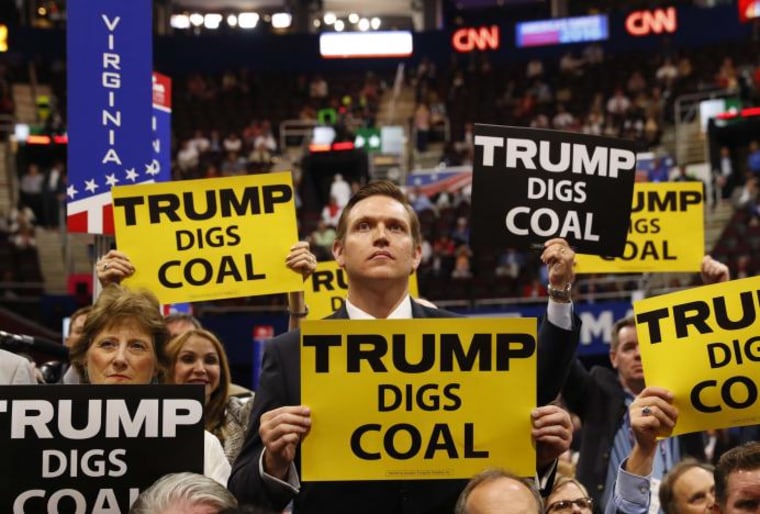President Donald Trump announced his intention for the United States to leave the Paris climate agreement on Thursday in a lengthy and rambling speech that veered into inaccurate territory several times.
Here are four claims Trump made that don't hold up.
1. The U.S. can renegotiate the agreement.
“We’re getting out, but we will start to negotiate a deal that is fair. And if we can, that’s great. If we can’t, that’s fine," the president said.
According to four European nations who released a joint statement Thursday afternoon, renegotiating the deal is not an option.
The French president said he would not work with the U.S. on climate issues anymore, and all three nations vowed to do more to help developing nations adapt.
"We deem the momentum generated in Paris in December 2015 irreversible and we firmly believe that the Paris Agreement cannot be renegotiated, since it is a vital instrument for our planet, societies and economies," the leaders of the three nations said in a statement.
2. The agreement tied America's hands.
In his speech, Trump painted a picture of a global cabal dictating America's actions and economy.
“We can’t build the [coal] plants, but [China] can, according to this agreement,” Trump said.
But the Paris accord doesn’t bar America, or any of the 194 other countries that are a part of it, from doing anything. The non-binding agreement allowed countries to map out their own, personalized plans for reducing emissions that cause climate change. The hope was that through peer pressure, diplomacy and negotiation, the countries would grow their commitment to reducing carbon emissions over the years while giving them the flexibility to respond to future variables. The accord carries no penalties should nations miss their targeted carbon emission reductions or simply decide not to comply.
The U.S. vowed to reduce its emissions by at least 26 percent below 2005 levels by 2025, something that could mean less coal for America, but there is no specific limit. Under China's plan, their emissions would peak in 2030 — indeed allowing them more reliance on coal in the short term — after which a fifth of its energy would come from carbon-free sources.
3. Leaving the accord is a boost for the coal industry.
There is no industry-wide consensus. While some members of the industry cheered Trump's decision, some in the coal industry actually lobbied the president to stay in the Paris accord, arguing it would better serve their interests long term.
Additionally, while claiming the deal was bad for domestic energy industry, like coal, the president mentioned in off-script comments that there was a forthcoming “big mine opening up, a brand new mine. It’s unheard of; for many, many years that hasn’t happened.”
Whichever mine opening the president is speaking of is not the first in years. A handful of mines have already opened or are in the works this year, though it is of course more rare than it is common. Still others have continued to close, with three coal plants that shuttering today, according to the Los Angeles Times.
Promises update.
"One by one, we are keeping the promises I made to the American people during my campaign for president," Trump said in his speech.
Trump did promise to leave agreements like the Paris accord, and did largely keep his promise with the announcement on Thursday. But he’s also broken a slew of his own promises — he opted not to label China a currency manipulator or leave NAFTA, to name two.
This remark comes mere hours after the White House announced it would not yet move the U.S. Embassy in Israel from Tel Aviv to Jerusalem, something the president swore he’d do right away. In January, he said he “wasn’t the kind of person to break promises” when an Israeli publication asked him about it.

